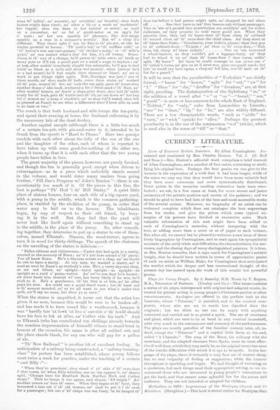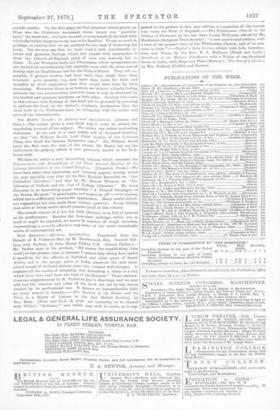outside readers. On the first page; we find allusions which
puzzle us. What was the Centenary movement whose breath was "partially fatal," we know not ; nor have we road, or even heard of, the book with whioh the writer supposes every one to be familiar. To say so much is, perhaps, to confess that we are unfitted for the task of reviewing the book ■ Yet we may say that we have read it with considerable in- terest and pleasuro, feelings which any reader who approaches it from the Church-of-England point of view can scarcely fail to share. To the Wesleyan body, any Churchman whose sympathies are not limited by.sacerdotalism will naturally tarn with the same sort of feeling that an Englishman has for the United States. They left us; possibly, if greater wisdom had been used, they might have been retained; quite possibly, too, they have done more for faith and morality by their separation than they would have dono by their remaining. Moreover, there is at bottom, WO believe, a kindly feeling between the two communities, however much it may be disturbed by hot-headed and ignorant partisans on both sides. Readers who come to this volume with feelings of this kind will be gratified by perusing it, and not the least by the writer's emphatic declaration that the main body of the Wesleyans have no sympathy with tho action and aimswf the Liberationists.



































 Previous page
Previous page